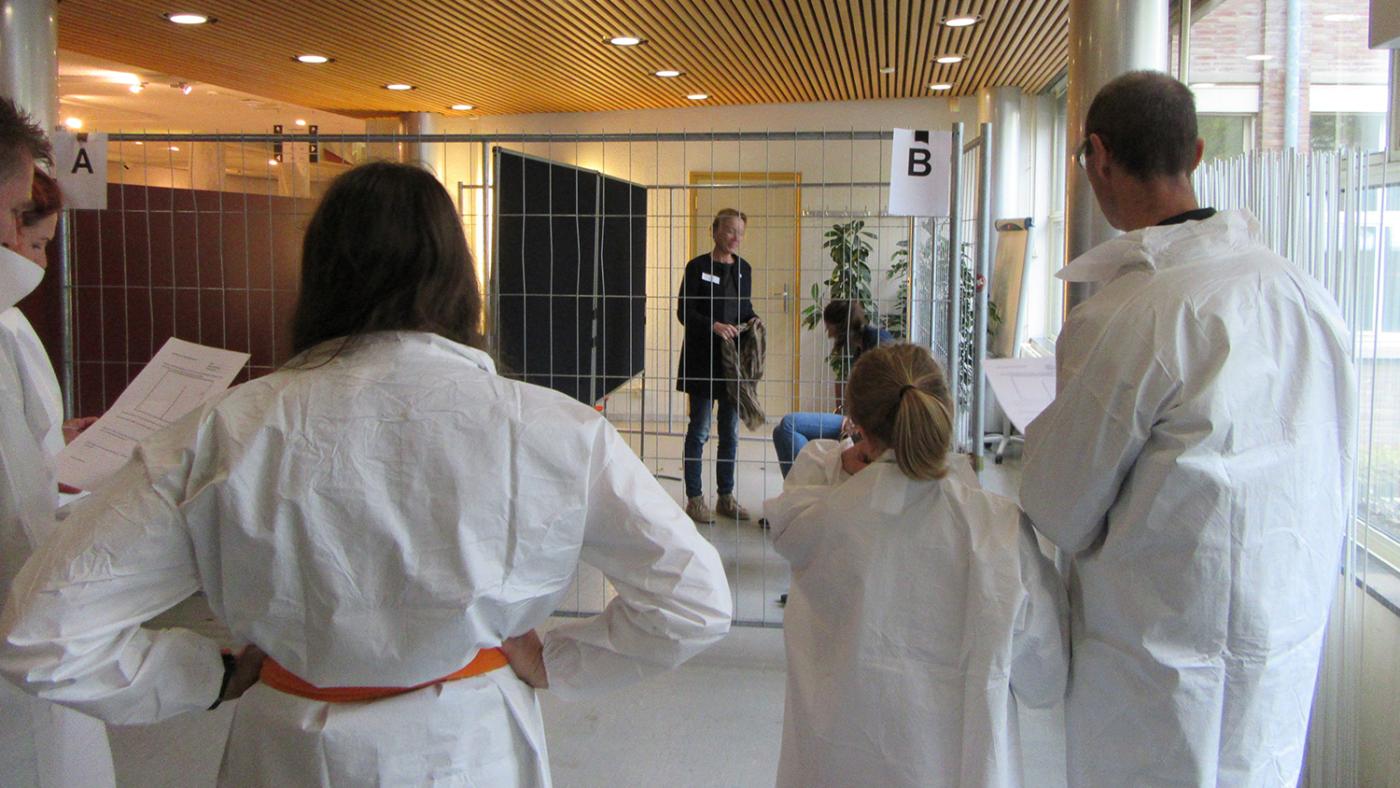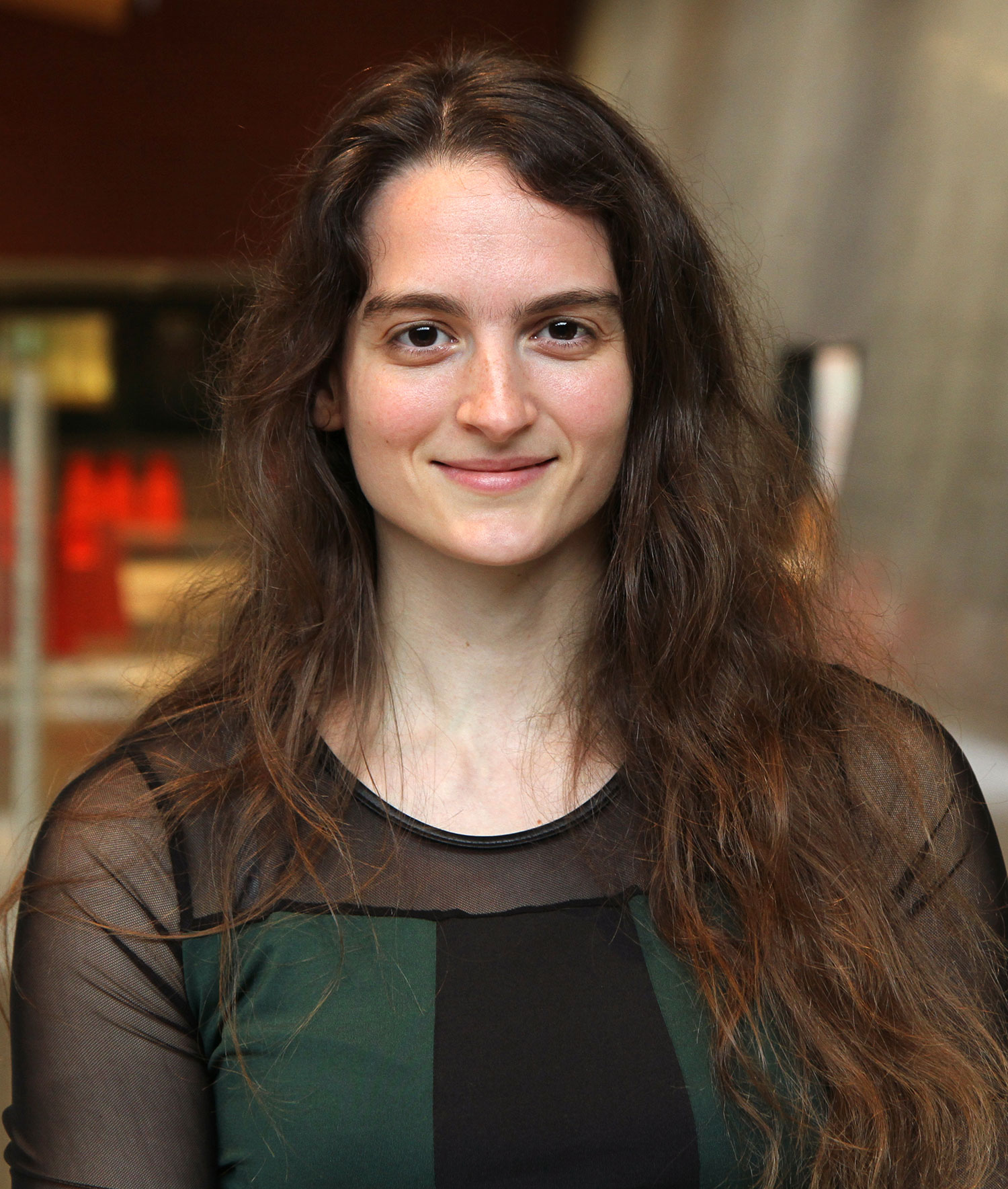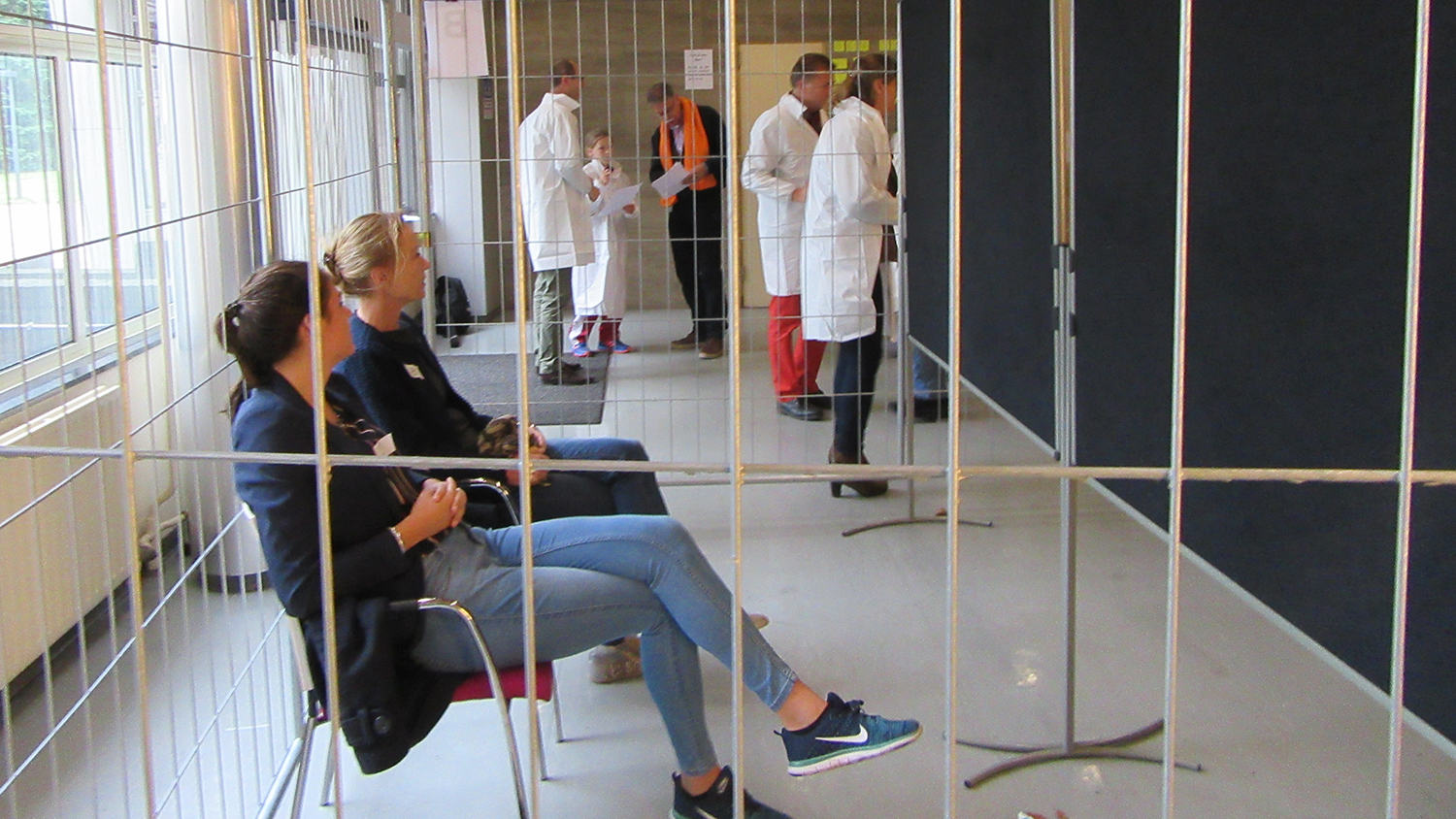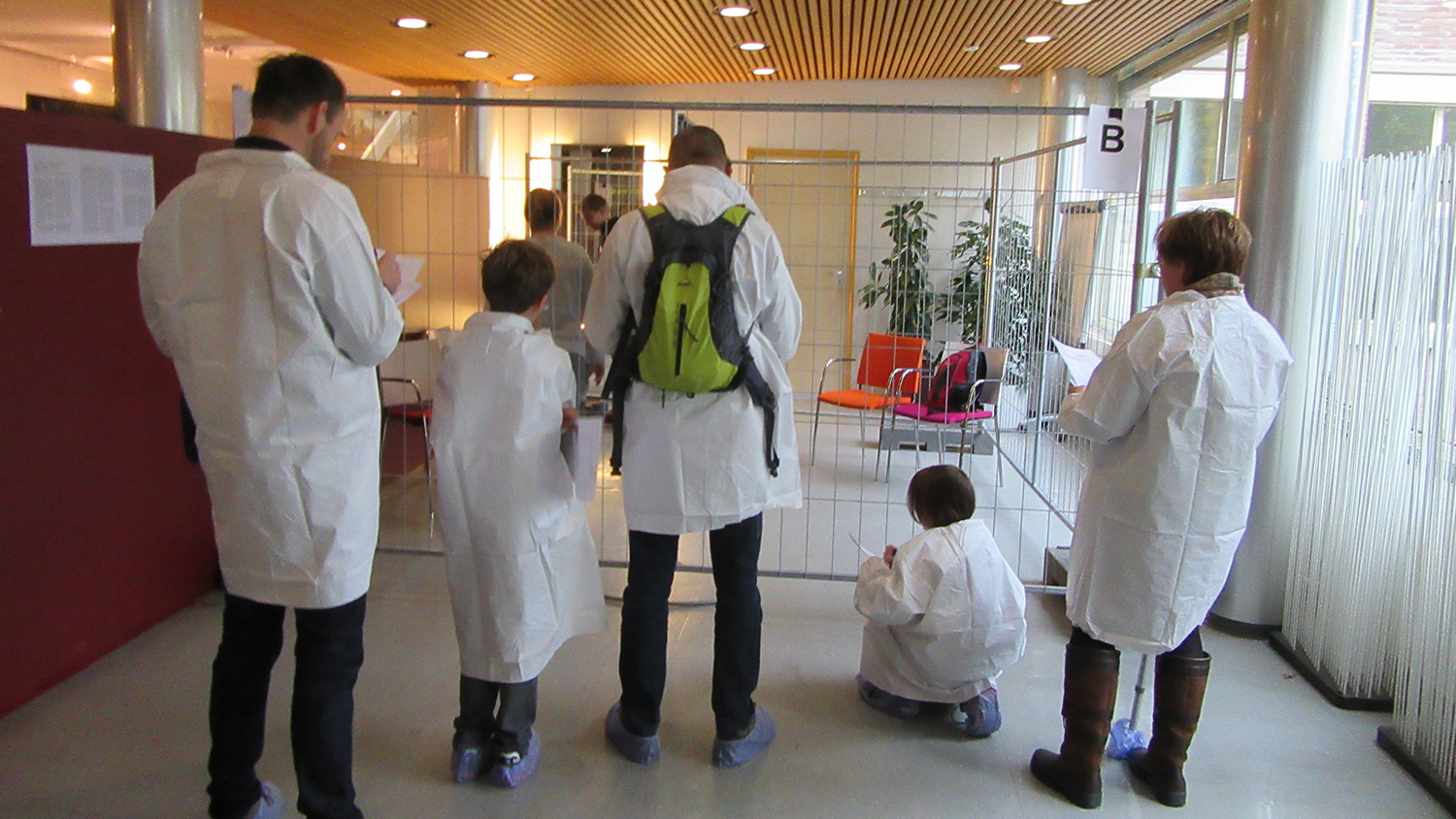‘Humans shouldn’t decide whether animals participate in scientific research’

On September 20, PhD candidate Anne van Veen defended her thesis, titled Of Mice, Monkeys & Better Science. Through the use of archival research, she charted the use of test animals in the Netherlands between 1950 and 2020. Her research was executed at the National Institute for Public Health and the Environment (RIVM in the Dutch acronym) and employed at UU’s Freudenthal Institute. Some may remember Van Veen from the University Council, where she was a member from 2019 to 2021, representing the Utrecht PhD Party.
On her website, Van Veen describes herself as an artist-researcher. “I started dancing when I began studying Social Sciences at UU. As a dancer and choreographer, I’ve worked at a prison and in special education institutions. "I always reviewed a lot of literature to prepare my choreographies, so my work has always involved science.” The lack of funding in the cultural sector led her to go back to the academic world. As a vegan, she felt drawn to the subject of animal testing.
I get it that it might sound weird to treat monkeys and fruit flies the same way
 In her thesis, Van Veen concludes that, while we treat test animals better than in the past, our attitude towards them hasn’t fundamentally changed. Human interest is still paramount, and humans are still the ones deciding the fate of test animals.
In her thesis, Van Veen concludes that, while we treat test animals better than in the past, our attitude towards them hasn’t fundamentally changed. Human interest is still paramount, and humans are still the ones deciding the fate of test animals.
“I don’t think we should decide for others, regardless of whether they're humans or animals, whether they participate in scientific experiments. Today, there is a power imbalance between them. We should search for ways to execute scientific research without exploiting that imbalance. We could have some sort of consent-giving for animals, for example.”
After being interviewed by Dutch newspaper NRC, Van Veen was criticized for putting animals and humans on too much of an equal footing. “Humans and animals having exactly the same rights – that's not what I’m not saying in my thesis. I’m talking about equivalency. I believe there should not be any power imbalance between humans and other animals. When you establish that there is still a need for animal testing, you make the assumption that animal testing is legit as long as humans benefit from it. In my thesis, I state that this assumption needs to be made explicit, so we, as a society, can discuss the legitimacy of animal testing.”
Van Veen consciously does not differentiate between the species being used in research. “I get it that it might sound weird to treat monkeys and fruit flies the same way. From my human bias, I can empathise with monkeys a lot better than with fruit flies, but in the future we may possibly find out how fruit flies experience pain.”
There is just a fundamental difference of opinion about animal rights
Animal testing is a thorny subject, that provokes a multitude of responses from proponents and opponents. “The awareness that they may face resistance is very prevalent among scientists who work with animal testing. To me, it was important to show in my thesis that the problem doesn’t lie with these individuals, but rather with the way we, humans, regard other animals.”
In Van Veen's view, this resistance only stands in the way of good communication. “Scientists who use animal testing have been called torturers, while activists have been branded bunny huggers. I dare anyone to start an open conversation in such a climate! I believe these two groups have more in common than they think: everyone is trying to do the right thing for humans and animals. There is just a fundamental difference of opinion about animal rights.”
The distinction between humans and animals is emphasized from a young age

For her research, Van Veen organised a human variant of a cage-experiment originally executed with monkeys. “There were two cages, each of them set up in a different way. The central question was whether the monkeys had a preference.” Using fences, Van Veen copied the experiment for human test subjects. “Bystanders were giving lab coats and observation forms, where they had to answer questions about the caged humans’ wellbeing.” The experiment had, therefore, a dual function: having people experience what it is like to be a test animal, and informing bystanders about animal testing and its history.
It definitely gave the participants food for thought. “We also asked them: are you an animal? Only small children really thought that was a weird question. The distinction between humans and animals is emphasized from a young age.”

Giving precedence to science proposals that do not need animal testing
What kind of lessons does Van Veen hope UU learns from her thesis? “In a nutshell, I would advise them to display a stronger commitment to the further reduction of experiments involving animals, and have clear targets. In this transitional period, a lot of attention has been paid to the development of animal testing alternatives, but too little attention goes to animal testing reduction. For instance, what will new scientists do when having to build on existing research from their predecessors who still used animal testing?”
Van Veen thinks universities can encourage this reduction. “They could give precedence to research that does not require animal testing. If scientists still want to study subjects that cannot be researched without animal testing, they can spend their time finding animal-free solutions. For human medicine scientists, for instance, this would mean a shift towards disease prevention and environmental factors. Funding bodies can also contribute by only awarding money to proposals that do not need animal testing, in case research proposals are of equal value.”
Van Veen: “I also want to ask universities to find a place on their tables for the animal perspective. They could experiment with a democratic representation of animals, for example. Today, that would happen indirectly, through a human. Someone who explicitly represents the animal and is not too intertwined with research. Perhaps in the future we will learn new ways to communicate with animals that can facilitate direct representation.”
Van Veen is now wqworking as a postdoc at Radboud University in Nijmegen, where she studies the sustainability of the food chain. This subject also involves animals. “Among other things, I look at the possibilities of a food system that does not use animals.”
Wim de Leeuw, head of UU’s and UMC Utrecht’s Animal Welfare Body and member of the work group Transition to Animal-free Innovations (TPI), reacts to Van Veen's thesis : “This is a very interesting thesis with an original perspective. Van Veen makes us think. At the moment, we work in a research practice were animal testing is allowed both societally and legally, but only when there are no other options. So, the power imbalance between humans and animals are a given to us, though we are open to new perspectives and would love to debate it."
“The idea to democratically represent animals is a nice one. In practice, I think this already happens, through the Animal Welfare Body and the Commission for Animal Testing. In my opinion, the current state of affairs is therefore better than what the thesis shows historically."
TPI Utrecht has been working hard towards the turning-point that Van Veen writes about. That also translates to education: after all, the future belongs to young people.”
Photo of Anne van Veen: Ype Driessen